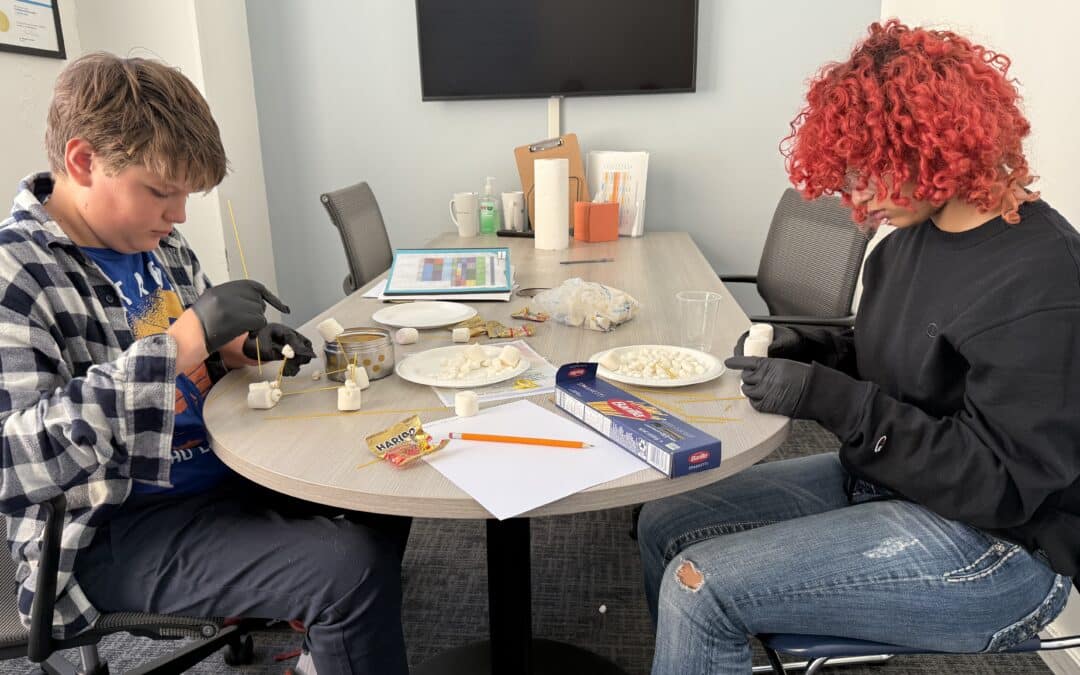Shared by Academics West.
Have you ever wondered how some people seem to effortlessly plan, organize, and complete tasks while others struggle? The secret lies in a set of mental skills called executive functioning (EF).
Executive Functioning Skills | Academics West
These skills are crucial in achieving success in school, work, and life. The good news being; everyone can improve their EF skills, regardless of their starting point.
So, let’s dive into EF skills and explore practical ways to enhance them.
Working memory: One of the key EF skills is working memory. This skill allows us to hold information in our minds and use it to complete tasks.
Think of it as mental sticky notes that help us remember the steps in a math problem or the ingredients for a recipe.
To strengthen working memory, you can practice memorizing shortlists, recalling information, or engaging in memory games and puzzles.
Planning and organizing: Another essential EF skill is planning and organizing. This skill involves setting goals, breaking down tasks into smaller steps, and creating a plan to achieve those goals.
For instance, when preparing for a test or working on a project, you can improve your planning and organizing skills by:
- Creating a study schedule
- Setting deadlines for each task
- Using tools like checklists or calendars to stay on track
Self-monitoring: Another critical EF skil, self-monitoring involves tracking your progress and making adjustments as needed.
Pay attention to how you’re progressing toward your goals and evaluate your performance to enhance self-monitoring.
If you notice that you’re falling behind or not meeting expectations, take a step back, analyze the situation, and proceed to make the necessary changes to get back on track.
Remember, you can reset yourself and start and keep hitting the restart button until you get it right.
Self-regulation: not forgetting the ability to control emotions and impulses, self-regulation is also an important EF skill. It helps you manage your frustrations, stay focused, and make wise decisions.
When faced with challenging situations, practice self-regulation by taking deep breaths, counting to ten, or seeking a healthy pathway for your emotions, such as talking to a trusted adult or engaging in calming activities like drawing or listening to music.
Cognitive flexibility: Cognitive flexibility is a crucial aspect of EF. It refers to adapting to new situations, switching between tasks, and thinking creatively.
To improve cognitive flexibility, expose yourself to new experiences, engage in activities that require thinking outside the box, and challenge yourself to see things from different perspectives.
Advice: You can start playing board games or filling crosswords or playing Soduko or puzzles to keep your cognitive functioning at peak performance.
Now that we understand the key EF skills, let’s explore some practical strategies to improve them:
Get enough sleep: A good night’s sleep is essential for optimal brain function. Aim for a consistent sleep schedule and establish a relaxing bedtime routine. Create a peaceful sleep environment by keeping your bedroom cool, dark, and quiet.
Eat a healthy diet: Fueling your body with nutritious foods improves your mood and energy levels, making it easier to focus and concentrate.
Remember to remain hydrated by drinking lots of water throughout the day.
Exercise regularly: Physical activity benefits your body and enhances your cognitive abilities. Biking, dancing, or playing sports can boost mood, reduce stress, and improve overall energy levels.
Aim for at least uninterrupted 60 minutes of moderate to vigorous physical activity daily.
Practice mindfulness: Mindfulness is being fully present in the moment without judgement. It helps you focus, concentrate, and manage your emotions.
Set aside a few minutes daily to engage in mindfulness exercises like deep breathing, guided meditation, or simply observing your surroundings. Let yourself let go of worries and distractions and embrace the present moment.
Set realistic goals: Trying to tackle too much at once can be ovewhelming. Break down big tasks into tiny, bite sized, more manageable steps. An action that will make you feel a sense of accomplishment as you undertake each step, motivating you to keep going.
Take breaks: If you feel overwhelmed or mentally exhausted, take short breaks to relax and clear your head. Engage in activities like walking, listening to music, or talking to a friend.
Reward yourself: Celebrate your achievements, regardless of their size. When you complete a task or achieve a milestone, give yourself a small reward.
Talk to a therapist: If you’re having difficulties with EF skills, don’t hesitate to contact a therapist or counselor. They can offer professional guidance and help you develop personalized strategies to improve your EF skills.
Therapists can also assist in identifying any underlying challenges or conditions that may be affecting your executive functioning.
Conclusion
In conclusion, executive functioning skills are crucial for success in various aspects of life. Study, embrace and practice each skill, your resilience will help you achieve overall success.
EF skills can be developed, nurtured, and improved with practice.
It’s okay to slip, however, dust yourself up and hit the restart button as much as it takes to keep going until you reach where you want to reach.
Keep persevering, and you will notice significant improvement over time. So, embrace the power of executive functioning, and watch as you thrive in school, work, and life!

